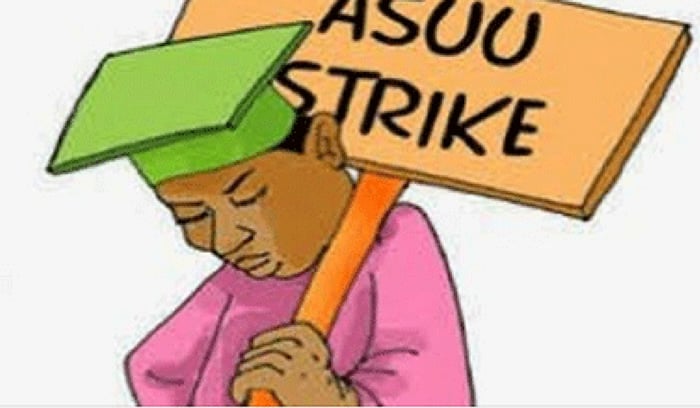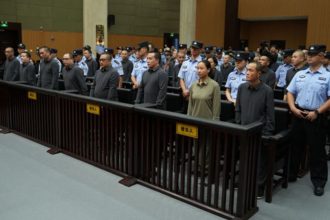The Academic Staff Union of Universities, Bauchi Zone, comprising six universities, has announced its readiness to embark on a fresh strike, citing the Federal Government’s failure to address the union’s unresolved issues.
The six universities that make up the Bauchi Zone of ASUU include the Federal University, Kashere, Gombe State; Abubakar Tafawa Balewa University, Bauchi State; University of Jos, Plateau State; Bauchi State University; Plateau State University, Bokkos; and Gombe State University.
Addressing a press conference in Jos on Saturday, the Zonal Coordinator of the union, Prof. Timothy Namo, expressed disappointment that despite previous warnings and a two-week warning strike, the government had not taken concrete steps to resolve the issues.
Namo, who was flanked by other officials and branch chairmen of ASUU in the zone, recalled that the union had given the government a one-month window to conclude re-negotiations and resolve outstanding issues, but barely a week remained, and nothing substantial had been achieved.
“The paltry increase proposed by the government is a drop in the ocean and far below expectations,” Namo said, adding that the union had rejected the offer.
He expressed concern that some government functionaries were undermining the re-negotiation process and misrepresenting the offers made.
The union leader questioned the government’s commitment to education, citing statistics that showed a significant increase in revenue allocation to states and the federal government, yet education continued to suffer.
Namo said, “ASUU NEC expressed concerns over the attitudes of some Government functionaries who are bent on undermining the re-negotiation process by subtle misrepresentation of the offers made.
“The part-payment of promotion arrears dating back to 2017, the release of third-party deductions, which are part of members’ unpaid benefits for years, can at best be described as a weak confidence-boosting exercise.
“There is no sufficient evidence from Government’s response so far to suggest that education is a priority in Nigeria and that Government truly desires to avert crises in the universities.”
The union leader urged stakeholders, including traditional rulers, students, civil society organizations, and the National Assembly, to prevail on the government to address the union’s demands and avert a crisis in Nigerian universities.
“The remaining days to the expiration of the 4-week window must be tactfully and judiciously used to holistically resolve all outstanding issues, in order to uplift the living conditions of academics in Nigeria. The surest way to protect the future of our children is to massively invest in education.
“Whereas Government claims that there is paucity of funds, evidence-based statistics suggest to the contrary. For example, in 2022, the data from the Federal Accounts Allocation Committee show that states received a total of 3.92 trillion naira. The figure in 2024 rose to 5.81 trillion naira, an increase of over 62%.
“Similarly, the Federal Government received 3.42 trillion naira in 2022 and 4.65 trillion naira in 2024, an increase of over 70%. These statistics confirm that it is not lack of funds but lack of political will and misplacement of priorities that make education suffer in Nigeria.
“The Union once again calls on traditional rulers, leaders of thought, students, Civil Society Organisations, NLC, and the National Assembly to prevail on Government to do the needful in order to avoid further crises in Nigerian universities,” he added.
Our correspondent reports that the union’s demands include improved salaries, better working conditions, and the release of unpaid benefits.
The strike notice has sparked concerns about the potential disruption of academic activities in the six universities in the Bauchi Zone.
Resolutions from the National Executive Council meeting of ASUU, held at Taraba State University, Jalingo, on November 8–9 and outlined in a statement by the union’s President, Prof. Chris Piwuna, urged the Federal Government to resolve lingering issues within 10 days of the one-month window.









